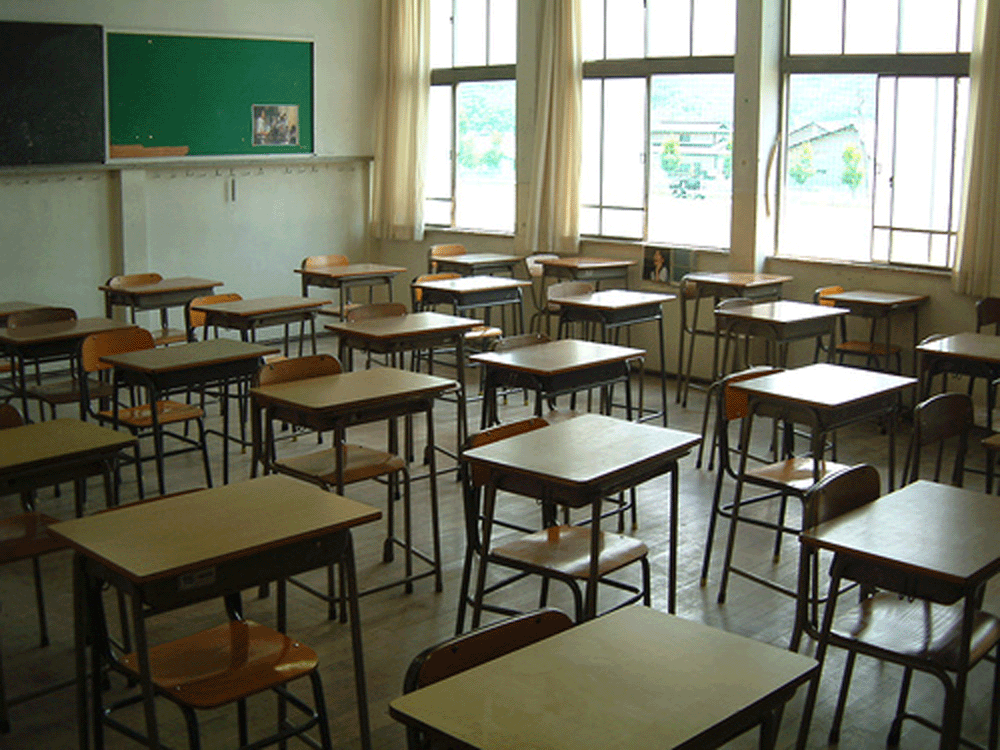EXAM chiefs have “grossly insulted” Scotland’s teachers by suggesting they give students too much help with coursework.
A senior official at the Scottish Qualifications Authority (SQA) expressed concern teachers were bumping up grades by giving pupils more than “reasonable assistance”.
The email from Dr Gill Stewart, head of qualifications development at the SQA, also threatened to investigate schools where the guidelines were not being strictly followed.
Enraged teachers say they have effectively been accused of cheating and branded Dr Stewart’s claims as “ill-judged and ill-tempered”.
Coursework contributes up to a third of the final score and can make a big difference to the eventual grade.

In her email, Dr Stewart said: “There was some evidence from this year…that the assessment conditions specified for coursework were not being consistently applied across all centres.
“To ensure equity and fairness for all candidates, it is essential that the specified conditions are rigorously applied in all centres.
“I would ask that you reinforce to your staff their professional responsibility to adhere to the assessment conditions for the coursework.”
She added: “Teachers and lecturers should understand the term ‘reasonable assistance’ and must ensure that the correct assessment conditions are applied.
“We will investigate all instances where we suspect that the specified assessment conditions have not been applied.”
Larry Flanagan – general secretary of union the Educational Institution of Scotland (EIS) – said the email was “grossly insulting” and that it accused teachers of “cheating the system”.
He went on: “They are either suggesting teachers are helping pupils too much or there is too much leeway in terms of redrafts.
“While we think that the SQA guidelines around coursework should be adhered to, if the SQA has evidence of some instances where that is not the case it should deal with them.
“This kind of general approach, whereby every school in the country stands accused, seems ill-judged and ill-tempered.”
Euan Duncan – president of the Scottish Secondary Teachers’ Association – added: “It’s unfortunate that the SQA appears to feel the need to issue this kind of veiled threat at a time when tensions are already running high.
“I’m surprised the SQA should forget its usual good manners and I genuinely hope this letter was an unfinalised draft circulated in error – perhaps as a consequence of the pressure the SQA has itself been experiencing recently.
“As it stands, the underlying tone of this letter risks knocking teachers’ self-esteem. It has the feeling of detaining a whole class rather than engaging in restorative dialogue with a small minority.
“Teachers are under tremendous pressure to complete all that is required of them by the SQA, and it has been widely acknowledged that the SQA assessment procedures have been a crushing weight on secondary teachers’ backs.
“It is disappointing that Dr Stewart’s letter makes no mention of centres’ near-universal adherence to specified assessment conditions or the fantastic work done by teacher to ensure that youngsters achieve their best possible grades against a background of diminishing resources.”
But Professor Mark Priestley – an expert in curriculum theory at Stirling University – said that there was likely pressure on teachers to inflate coursework grades.
He said: “We have got a system that places high emphasis on accountability to the extent that assessment is not only high stakes for kids, but for teachers as well.”
Teachers are usually allowed to give a certain amount of guidance to students in coursework.
The work is normally completed over an extended period of time, with multiple drafts before the final work can be submitted.
But guidelines say the submitted work must be entirely authored by the student themselves.
The work is marked by a mixture of teachers and SQA examiners.
A spokesman for the SQA said: “Our priority in all matters related to assessment is to ensure equity and fairness for all candidates while, at the same time, making sure that the standard and credibility of qualifications is maintained.
“It is important that we communicate with all centres on a regular basis to remind them of the guidance which is available to assist them in maintaining the fairness, reliability and quality of SQA’s qualifications.
“The Chief Examiner highlighted this area in her report, published on results day, following on from this year’s examination diet. This communication about coursework was a follow up sent to heads of centre as part of that ongoing process.”

